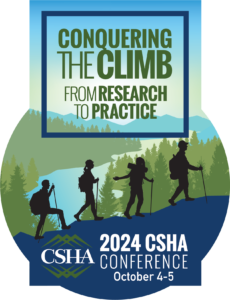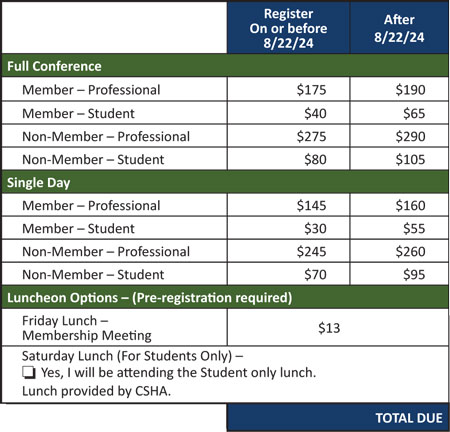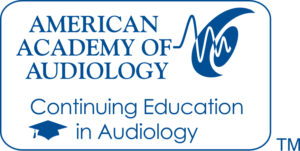JOIN NOW
Learn more about Member Benefits

Parker Arts, PACE Center
20000 Pikes Peak Avenue
Parker, CO 80138
Select the hotel that is right for you! The following are few hotels located near the PACE Center. All reservations are the responsibility of the attendee.
The Parker Hotel (formerly Ascent on Main)
0 .8 Miles from PACE Center
https://www.theparkerhotel.com/
Super 8 by Wyndham
1.9 Miles from PACE Center
https://www.wyndhamhotels.com/super-8/parker-colorado/super-8-parker-se-denver-area/overview
Springhill Suites by Marriott
2.3 Miles from PACE Center
https://www.marriott.com/en-us/hotels/denpk-springhill-suites-denver-parker/overview/
Holiday Inn
2.7 Miles from PACE Center
https://www.ihg.com/holidayinn/hotels/us/en/parker/denpr/hoteldetail
Hampton Inn and Suites
2.8 Miles from PACE Center
https://www.hilton.com/en/hotels/denpahx-hampton-suites-parker/
All registrations must be made on-site.
Member rates for current CSHA members only.
Cancellations accepted until September 12, 2024. A $25 processing fee will be deducted.

 The DEI session (S22) is offered separately for 0.2 ASHA CEUs (introductory level).
The DEI session (S22) is offered separately for 0.2 ASHA CEUs (introductory level).
Download Disclosures


The ethics session (S19) is offered separately for 0.1 ASHA CEUs (intermediate level).
 The Colorado Speech-Language-Hearing Association is approved by the American Academy of Audiology to offer Academy CEUs for this activity. The program is worth a maximum of 0.50 CEUs. Academy approval of this continuing education activity is based on course content only and does not imply endorsement of course content, specific products, or clinical procedure, or adherence of the event to the Academy’s Code of Ethics. Any views that are presented are those of the presenter/CE Provider and not necessarily of the American Academy of Audiology.
The Colorado Speech-Language-Hearing Association is approved by the American Academy of Audiology to offer Academy CEUs for this activity. The program is worth a maximum of 0.50 CEUs. Academy approval of this continuing education activity is based on course content only and does not imply endorsement of course content, specific products, or clinical procedure, or adherence of the event to the Academy’s Code of Ethics. Any views that are presented are those of the presenter/CE Provider and not necessarily of the American Academy of Audiology.
CSHA 2023 Conference Presenter Disclosures

Click here to read the Syllabus first!
The conference planning team will read the essays and then provide your grade directly to Adams State University.
Kevin Stuckey, MEd, CCC-SLP, Super Duper Publications
This presentation address how SLPs and parents can help their children ages 4-12 catch up on the basic language and literacy skills they have fallen behind on due to the COVID interruption of in-class learning. Tens of thousands of students across the country in Grades PreK-4 are very deficient in their ability to follow directions, listen carefully, comprehend and retain information and read. These children need to improve their skills NOW or they will not be successful in school, and they will more than likely continue to struggle their entire lives. Unfortunately, most SLPs, teachers and parents do not have time to give these at-risk students all the help they need, nor do they have the specific teaching tools that children need to improve their skills quickly. What can be done? One proven solution is to have these children start using the online programs HearBuilder and the Super Duper Digital Library. HearBuilder is the only online, research-based, foundational literacy program that address four fundamental learning skills: Following Directions (with Basic Concepts); Auditory Memory (Listening and Comprehension); Phonological Awareness (Sound Recognition); and Sequencing (2-6 Step). Children move through the program gradually at their own pace and work independently without the need for constant adult supervision. Significantly, HearBuilder keeps track of all student progress and has detailed reports for SLPs, educators, principals, administrators and parents. For those students needing additional help, the Super Duper Digital Library offers support with over 57,000 online educational and literacy-related resources.
Learner Outcomes: At the end of this presentation, participants will be able to:
Instructional Level: Intermediate | Track: Education
Taylor Seitz, MA, CCC-SLP, Taylor Neuro Specialists
This session will provide education on guidelines for the assessment and treatment of swallowing, AAC and cognitive-communication disorders within the neurodegenerative population. As SLPs in the medical field, we often become accustomed to our goals of care being rehabilitative in nature to maximize progress, as often reinforced by funding sources. However, when treating a progressive neurological disease, we must think holistically and, therefore, adapt our treatment goals to account for current symptomology and realistic progression of the disease. When we shift our focus to maintenance, prevention and comfort and let the patient/family goals guide our care, we work towards the most functional goals in quality end of life care.
Learner Outcomes: At the end of this presentation, participants will be able to:
Instructional Level: Intermediate | Track: Medical
Ally Carrillo, MA, CCC-SLP, University of Colorado at Boulder
What is “trauma,” and how do we, as professionals working with humans across the lifespan, offer our services from a place that is “trauma-informed?” How do we provide speech therapy while also recognizing the traumatic experiences that often lead someone to see SLPs in the first place? How is trauma-informed care related to diversity, equity and inclusion? When is trauma-informed care beyond our scope of practice? And how is working with traumatized individuals related to provider burnout? This presentation will focus on what it means to be trauma-informed as SLPs. We will explore how to consider the past experiences and current emotional needs of clients, students, colleagues and ourselves, while providing speech-language services across settings and populations. Special attention will be paid to providing trauma-informed care that recognizes and acknowledges bias and systems of inequality.
Learner Outcomes: At the end of this presentation, participants will be able to:
Instructional Level: Introductory | Track: Multi-Interest
Amy Graham, MA, CCC-SLP, Graham Speech Therapy
Differential diagnosis of speech sound disorders is key to ensuring that appropriate interventions are chosen. This presentation will address how to differentially diagnose speech sound disorders with a thorough evaluation, including how to dynamically administer articulation assessments, conduct an oral-facial exam, interpret case history information, options for intelligibility measurement, considerations for phonological analysis and phonological awareness skills, as well as when to consider the administration of a dynamic motor speech evaluation when childhood apraxia of speech is suspected.
Learner Outcomes: At the end of this presentation, participants will be able to:
Instructional Level: Intermediate | Track: Education
Stephanie Barnard, MS, CCC-SLP, Speech Language Pathologist
Primary Progressive Aphasia is getting increasingly diagnosed and visible in medical and lay communities. What do we know about this disease and how it progresses over time? This course will cover the three types of PPA, early/middle/late stage characteristics, treatment ideas and important topics to consider when supporting a patient and their family with this new diagnosis. The focus of this topic will be for the outpatient clinician though many of the principles are applicable across various healthcare settings.
Learner Outcomes: At the end of this presentation, participants will be able to:
Instructional Level: Introductory | Track: Medical
Hillary Cooper, MA, CCC-SLP, Speech-Language Pathologist
Thickeners are pervasively used in dysphagia management and have historically been taught to be benign one-size-fits-all solutions for aspiration. However, current research shows that thickeners may be contraindicated in some circumstances and harmful in others. In this lecture, we discuss the evidence behind the use of thickeners as dysphagia compensation techniques as well as the pros, cons and ingredients of the most commonly used thickeners on the market.
Learner Outcomes: At the end of this presentation, participants will be able to:
Instructional Level: Introductory | Track: Medical
Amy Graham, MA, CCC-SLP, Graham Speech Therapy
Many SLPs find correcting residual /ɹ/ errors to be extremely challenging. This presentation will focus on how to properly assess the speech mechanism for possible underlying structural/functional deficits that could impede progress in therapy and provide practical strategies to help SLPs elicit /ɹ/ using cognitive reframing and multi-sensory cues. Considerations for target selection and strategies to promote generalization will also be addressed.
Learner Outcomes: At the end of this presentation, participants will be able to:
Instructional Level: Intermediate | Track: Education
Kimry Schwarz, MS, CCC-SLP, Advanced Dysphagia Diagnostics LLC
This course will cover general classifications of HNC including tumor staging and implications for the SLP. We will discuss the need for pre-radiation SLP diagnostics and therapy. Various therapy approaches and the benefit of ongoing therapy in this patient population will also be reviewed. This course will also cover the need of a multidisciplinary team to best serve patients with HNC.
Learner Outcomes: At the end of this presentation, participants will be able to:
Instructional Level: Intermediate | Track: Medical
Hillary Cooper, MA, CCC-SLP, Speech-Language Pathologist
Thickeners are pervasively used in dysphagia management and have historically been taught to be benign one-size-fits-all solutions for aspiration. However, current research shows that thickeners may be contraindicated in some circumstances and harmful in others. In this hand-on lab experience, the participant will be provided with a variety of commercial thickener products to mix and then perform qualitative ratings based on organoleptic properties such as mouthfeel, texture, smell, appearance and more. Additionally, the speaker will guide the participants through a brief science experiment which will highlight the impact that salivary amylase has on thickener viscosity and stability. (DISCLOSURE/ALLERGY WARNING: Participants will be expected to consume small quantities of thickener products mixed with water during this session. Do not participate if you are highly allergic to corn, milk, galactomannans, xanthan gum or erythritol.)
Learner Outcomes: At the end of this presentation, participants will be able to:
Instructional Level: Introductory | Track: Medical
Patty Walton, MA, CCC-SLP, BCS-F, Chelsea Blanchard, MA, CCC-SLP, Whitney Noven, MS, CCC-SLP, Bethany Tileston, MA, CCC-SLP, Meghan Walton, MA, CCC-SLP, Emily Figliomeni, MA, CCC-SLP; Center for Stuttering Therapy
Stuttering is an area in the field of Speech Pathology that can be difficult to navigate due to the lack of homogeneity across clients and the lack of agreement regarding treatment strategies and approaches. As specialists who treat stuttering, we often have questions during presentations that always begin with “I have this kid …” SLP’s come to talks with specific kids in mind that they are looking for answers to, or perhaps are looking for validation that they are on the best therapeutic path for the child. This talk will provide attendees the opportunity to discuss specific cases and ask questions about diagnosis and treatment with the speech language pathologists at the Center for Stuttering Therapy in a roundtable fashion, divided into preschool, school age, teen and adult age groups. This format will encourage
in-depth discussion, sharing and problem solving for both assessment and treatment, as well as discussion about current trends in the field.
Learner Outcomes: At the end of this presentation, participants will be able to:
Instructional Level: Intermediate | Track: Education
Irene H. Kim, MA, CCC-SLP, CBIS, Post Acute Medical (PAM) Specialty Hospital of Denver
This program delves into the vast topic of neurological injuries, seeking to further knowledge and understanding of various types. There is a brief review of anatomy and recent studies highlighting neural interconnectedness. The discussion is then divided into injuries from the external forces (Traumatic Brain Injury) and those from the internal damage (non-traumatic)/ Focusing on TBI, there will be a review of common mechanisms of injury, the continuum of care and the Rancho Levels of Cognitive Functioning. Complicated non-traumatic disorders such as Anoxia, CVA and Meningitis will then be discussed. There are moments of mindfulness and examples of specific patients throughout. Finally, descriptions of how to promote teamwork and brain injury programs are presented, including staff orientation/education on aphasia and neurobehavioral management, as well as ideas for team communication.
Learner Outcomes: At the end of this presentation, participants will be able to:
Instructional Level: Intermediate | Track: Medical
Charlie Lenell, PhD, CCC-SLP, University of Northern Colorado
Vocal health is influenced by many factors such as age, sex, occupation and overall physiological condition. Common key components to maintaining adequate vocal health include the elimination of vocally damaging habits (e.g., screaming, habitual coughing or throat clearing, etc.), ensuring proper breath support (e.g., diaphragmatic breathing) and adequate hydration. However, certain special populations may benefit from additional vocal techniques or habits to ensure a healthy voice. For example, vocal disuse is relatively common for elderly individuals; therefore, suggesting vocal use throughout the day such as humming may help prevent or reverse laryngeal changes associated with disuse. This presentation will discuss the theoretical principles and core features of vocal health programs as well as discussing the implementation and customization of these services for special populations. Special populations will include the following: professional voice users (teachers and singers), transgender individuals, aged individuals and individuals with Parkinson’s Disease.
Learner Outcomes: At the end of this presentation, participants will be able to:
Instructional Level: Intermediate | Track: Multi-Interest
